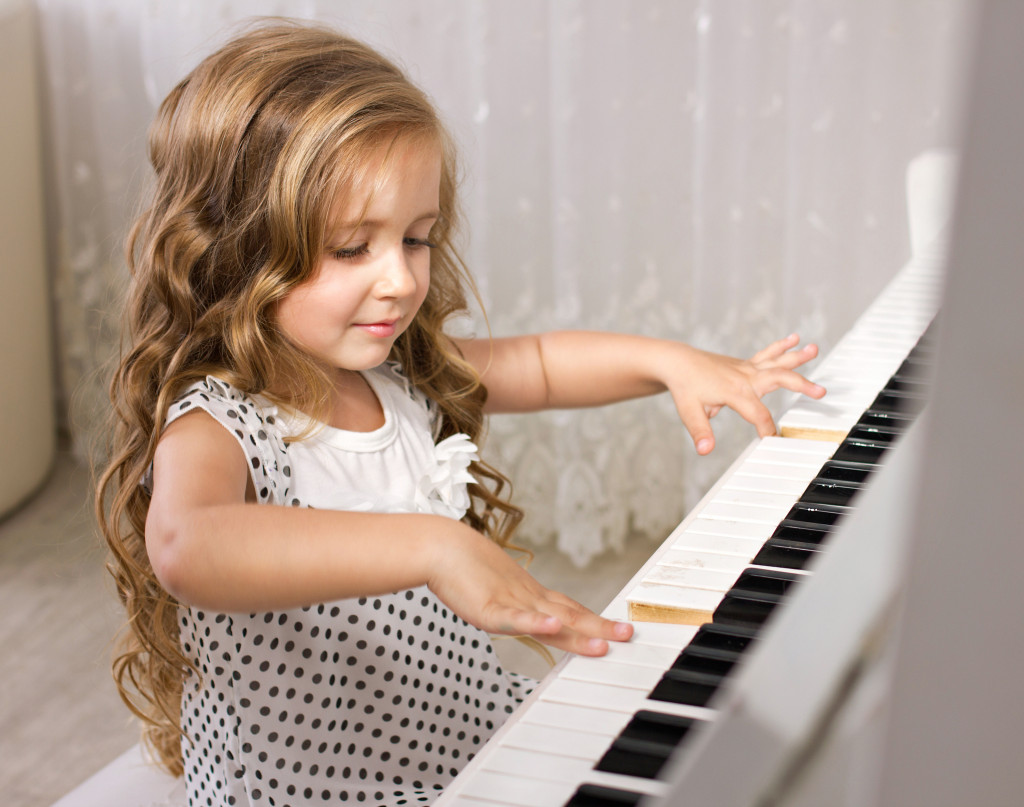Teaching children how to appreciate and play musical instruments have been proven to sharpen their mental abilities, leading to better grades in school and a wider job prospect in the future.
Piano, in particular, has numerous benefits. The brains of those who can work differently compared to the rest of us. Unlike the guitar which has only six notes, a piano has 88 keys. One has to navigate all 88 keys with their two hands, which allows them to play 10 notes at a time.
Why a Piano Player’s Brain is Different
In most people, the central sulcus in the brain either dips deeper toward the left or the right. This determines whether a person becomes left-handed or right-handed. However, in piano players, the central sulcus is more symmetrical.
This is not a trait they had since birth. Like everyone else, they likely were born either left-handed or right-handed. It is their training playing the piano that completely transforms areas of their brains. The musical instrument makes a child more well-rounded overall.
Moreover, playing the piano makes the brain better in every way. When jazz pianists play, the connections between different parts of the frontal lobe grow very efficient when compared to non-players. The frontal lobe is responsible for problem-solving, decision-making, language, and social behavior.
The benefits of playing the piano on the brain have long ago been proven. When is the right time to call a piano teacher to train your child to play the musical instrument?
When is Young Too Young?
You probably have heard people say that they learned how to play a musical instrument when they were young, but they were forced by their parents to have lessons and grew resentment for it. Although it would be nice for a child to start early, training them as if they were part of an orchestra may only make them dislike the musical instrument.
There is growing evidence that there is a window of opportunity from birth to age of 10 when it comes to developing a child’s musical sensibilities. At this time, their brain is still developing. The structures and mechanisms which play a role in learning and understanding music are still very malleable.
However, this does not mean that parents should pressure their children to sit down in front of the piano all day. It is possible to teach a child how to play the piano without taking out the enjoyment of the activity. At this time, experts say that children can be taught the basics by their parents. It should not be very formal yet. All they need to gain from it is the experience and the joy of being able to create melodies by manipulating different keys.
When is the Right Time?

You can begin more formal training when your child is ready. There might not be a specific age when all children are interested in mastering how to play the piano. Some may be ready for lessons as early as three years old. Others may take more time.
One way to know if a child can start formal training is to observe them. They will likely show signs that the piano is more than just a passing interest. For example, if a child gravitates more toward the musical instrument instead of toys during a party, or they run to the piano the moment they come home from school. At this point, they developed a love and genuine interest in playing which means that they can commit to taking lessons and playing regularly.
If You are Unsure, Ask
The best way to know that they are ready is to ask them directly, but be clear on what would be required of them when they get formal training. Explain how the lessons will eat up their time for other things. They may have less time for watching television or playing video games because they have to meet their teacher and practice the piano.
The child should also be warned that they would be asked to rehearse a song or a technique over and over again which can become tiresome. However, tell them that it is necessary for them to master the piano.
Playing the piano should be an enjoyable experience. Forcing a child to go through it even if they no longer want to continue will only prevent them from finding joy in music and reaping the benefits of playing a musical instrument.




